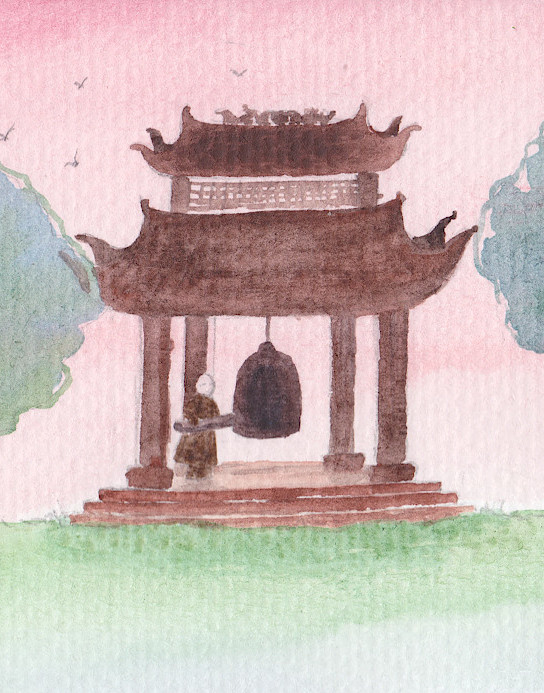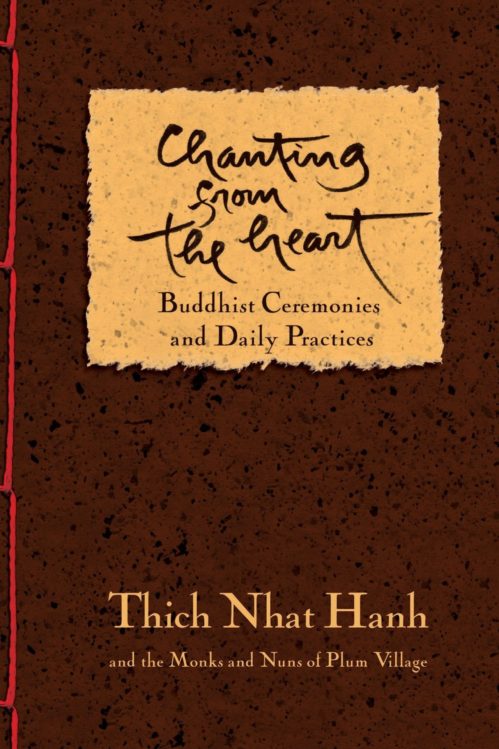
We invoke your name, Avalokiteshvara. We aspire to learn your way of listening in order to help relieve the suffering in the world. You know how to listen in order to understand. We invoke your name in order to practice listening with all our attention and open-heartedness. We will sit and listen without any prejudice. We will sit and listen without judging or reacting. We will sit and listen in order to understand. We will sit and listen so attentively that we will be able to hear what the other person is saying and also what is being left unsaid. We know that just by listening deeply we already alleviate a great deal of pain and suffering in the other person.
We invoke your name, Manjushri. We aspire to learn your way, which is to be still and to look deeply into the heart of things and into the hearts of people. We will look with all our attention and open-heartedness. We will look with unprejudiced eyes. We will look without judging or reacting. We will look deeply so that we will be able to see and understand the roots of suffering and the impermanent and selfless nature of all that is. We will practice your way of using the sword of understanding to cut through the bonds of suffering, thus freeing ourselves and other species.
We invoke your name, Samantabhadra. We aspire to practice your vow to act with the eyes and heart of compassion, to bring joy to one person in the morning and to ease the pain of one person in the afternoon. We know that the happiness of others is our own happiness, and we aspire to practice joy on the path of service. We know that every word, every look, every action, and every smile can bring happiness to others. We know that if we practice wholeheartedly, we ourselves may become an inexhaustible source of peace and joy for our loved ones and for all species.
We invoke your name, Kshitigarbha. We aspire to learn your way of being present where there is darkness, suffering, oppression, and despair, so we can bring light, hope, relief, and liberation to those places. We are determined not to forget about or abandon those in desperate situations. We will do our best to establish contact with those who cannot find a way out of their suffering, those whose cries for help, justice, equality, and human rights are not being heard. We know that hell can be found in many places on Earth. We will do our best not to contribute to creating more hells on Earth, and we will help transform the hells that already exist. We will practice in order to realize the qualities of perseverance and stability, so that, like the Earth, we can always be supportive and faithful to those in need.
We invoke your name Sadaparibhuta. We aspire to learn your way of looking deeply with the eyes of non-discrimination in order to see the true qualities of others. Whenever you meet anyone, you bow respectfully and say in appreciation: “I respect you deeply. You are a future Buddha.” We vow to look deeply into ourselves to recognise the positive qualities that are there, to accept and to love ourselves. We vow only to water positive seeds in ourselves and in those around us. By doing so, our thoughts, words and deeds will give rise to self-confidence and acceptance of ourselves, our children, grandchildren and all those we know. We vow to look deeply with the eyes of non-discrimination to see that the joy and success of the other person is also our joy and success. We vow to behave and to speak with humility and respect. We vow to practice loving speech to help people who underestimate themselves, see that they are wonders of the universe. We know that only when we are able to transcend the barriers of a separate self, shall we be able to transform the superiority, inferiority, and equality complexes and realise true happiness and freedom.






Join the conversation